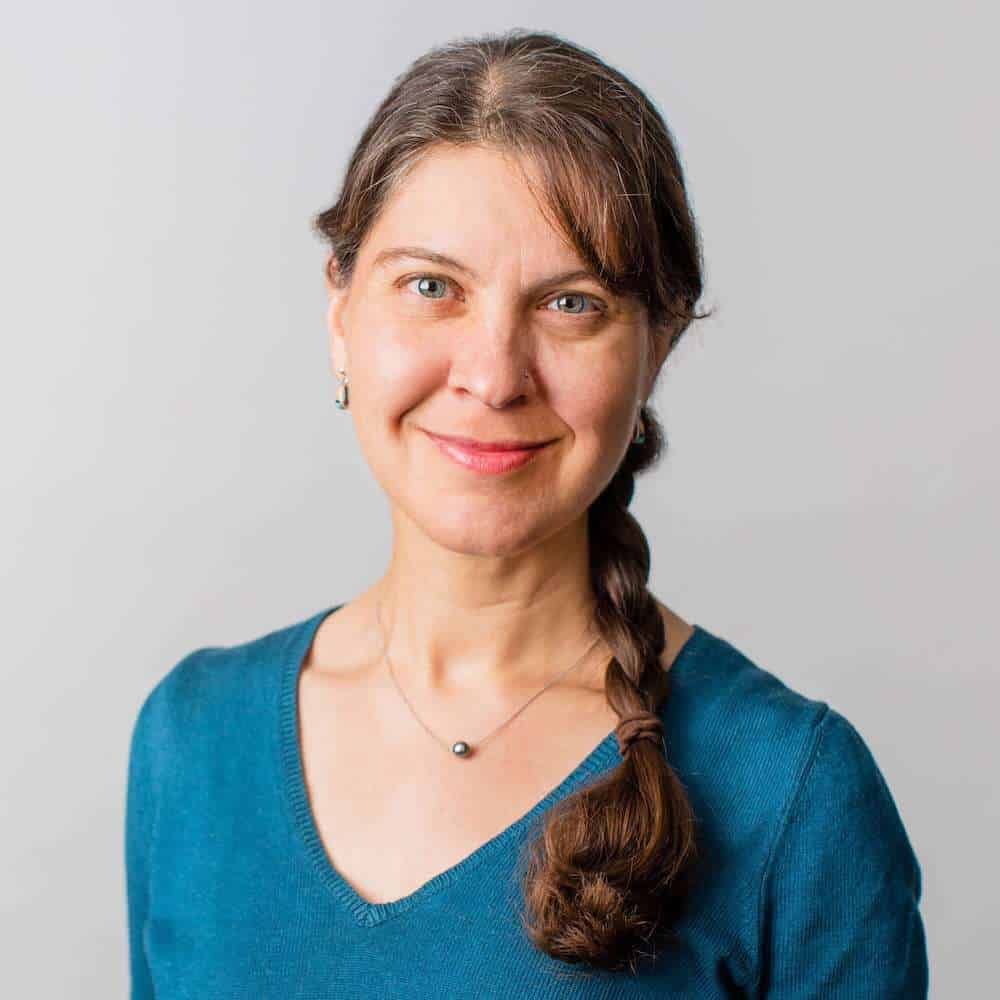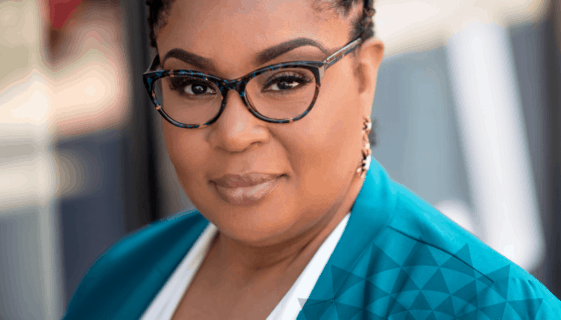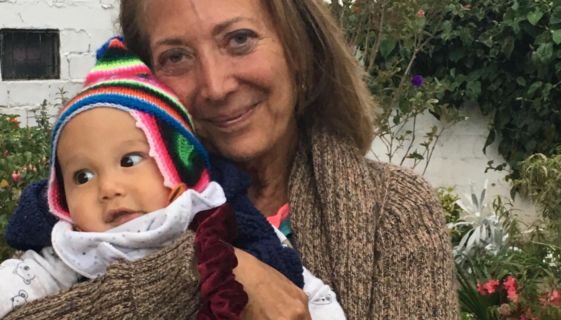What is your name, practice and specialty area?
Hi. My name is Chloe Atreya. I’m a gastrointestinal medical oncologist and researcher at the University of California, San Francisco (UCSF) Helen Diller Comprehensive Cancer Center. I’m also an affiliated faculty member with the UCSF Osher Center for Integrative Medicine. My specialty area is colorectal cancer.
Why did you go into this field?
I chose oncology -or it chose me- because I was drawn to try to help people live well with a serious illness that affects the whole body, mind and spirit— causing ripple effects throughout families, communities and for generations to come. Additionally, I earned a PhD in Pharmacology, and oncology is an area where there are ample opportunities to bridge research and clinical practice.
Is the incidence of colorectal cancers growing? If so, among which age groups and races or ethnicities?
The incidence of colorectal cancer and deaths from colorectal cancer have been declining overall in the United States since the 1990s, with improvements in screening and treatment options. Among individuals under the age of 50 however, the incidence of colorectal cancer has been rising at a rate of 1-2% per year. By 2030, it is predicted that 1 in 10 colon cancers and 1 in 4 rectal cancers will be diagnosed in patients under the age of 50 in the United States, and the same disturbing trend is being observed in Mexico.
The sharpest increases have been reported in the 20-29 age group and in young LatinX patients—in both cases, the increase is primarily in rectal cancers, at a rate of nearly 4% per year. Although the incidence of young-onset colorectal cancer is rising faster in non-Hispanic whites compared to blacks, the absolute incidence of colorectal cancer remains higher among black individuals under age 50. American Indians, particularly Alaska Natives, are also disproportionately affected, including in the under 50 age group.
“By 2030, it is predicted that 1 in 10 colon cancers and 1 in 4 rectal cancers will be diagnosed in patients under the age of 50 in the United States, and the same disturbing trend is being observed in Mexico.”
How do you explain the increase in the incidence of colorectal cancers? What factors have contributed?
The short answer is that we don’t know yet— established risk factors for colorectal cancer like obesity, Western diet patterns, physical inactivity, smoking, alcohol consumption, family history, and inflammatory bowel disease are all contributing, but they do not tell the whole story. We are investigating the gut microbiome for clues related to food quality or environmental toxins.
Are there differences in outcome or standard of care for treatment of colorectal cancers depending on socioeconomic group, race or ethnicity? If so, what if anything is being done to address this disparity?
Standard of care treatment guidelines do not differ by patient age, socioeconomic status, race or ethnicity. Access to high quality health care unfortunately does differ by socioeconomic factors, and structural racism is real, impacting black individuals disproportionately. Black patients with colon cancer are 40% more likely to die from their cancers compared to white patients. Chadwick Boseman’s death last year, at age 43, was a tragic reminder that even superheroes are at risk.
“Access to high quality health care unfortunately does differ by socioeconomic factors, and structural racism is real, impacting black individuals disproportionately. Black patients with colon cancer are 40% more likely to die from their cancers compared to white patients.”
Addressing disparities starts with prevention: access to high quality nutrition, safety (including safeguards against occupational hazards), and equitable health care, housing, education and so on. Prevention encompasses education and outreach—involving community primary care providers who might not currently suspect cancer in young patient with rectal bleeding, for example, contributing to delays in diagnosis. Addressing disparities requires access to screening and early detection technologies, and community engagement to overcome stigma associated with screening for colorectal cancer that may exist in at-risk populations.
If cancer is diagnosed, addressing disparities relies on policies and patient navigators to improve access to high quality care, including the opportunity to participate in clinical trials at a Comprehensive Cancer Center. Barriers to accessing high quality care may include restrictive insurance (or lack thereof), transportation, distrust, caregiving responsibilities etc. There are important initiatives underway to address these disparities, although the problems rooted in racism are as complex and entrenched as cancer itself.
Now I’m thinking of Dr. Ibram X. Kendi, who himself was diagnosed with stage IV colon cancer at age 35 in the absence of any lifestyle risk factors—instead, linking his cancer to the “metastatic racism” afflicting this nation. In the final chapter of “How to Be an Antiracist,” Dr. Kendi speaks (in the audiobook version) courageously and poetically about his diagnosis and treatment, offering hope for our collective survival. Stories like Dr. Kendi’s are spurring more interest in research on how intergenerational trauma may be impacting human health, with malignant potential.
Research indicates that lifestyle has a significant impact on the likelihood of getting a diagnosis of colorectal cancer. Do you counsel your patients concerning lifestyle? If you do, what do you tell them or where do you direct them for information?
I do counsel my patients regarding lifestyle. All of my patients already have colorectal cancer, and there is evidence that lifestyle remains important after diagnosis. I advise aiming for at least 150 minutes of exercise per week, equivalent in intensity to brisk walking, along with at least two of episodes of resistance training weekly. I recommend a diet that is high in vegetables, fruits and whole grains, and which may include lean meats like fish and chicken. There is some data indicating that tree nuts and fish with dark meat are beneficial.
On the other hand, I advocate for a diet that is low in red meat, processed meats and simple carbohydrates, like refined white flour and sugar. It is best not to drink alcohol or sugar-sweetened beverages and definitely to avoid smoking. I recommend mind-body therapies, like meditation, for stress reduction, and to help manage symptoms including fatigue and pain. I am fortunate to work at a Comprehensive Cancer Center, so I refer patients to specialists like nutritionists and integrative medicine providers at UCSF for more in-depth and tailored information. The Anticancer Lifestyle Program is also a great resource.
“I advise aiming for at least 150 minutes of exercise per week, equivalent in intensity to brisk walking, along with at least two of episodes of resistance training weekly.”
What do you perceive as the principal barriers to lifestyle change?
I treat a lot of young patients who may be balancing raising families and trying to continue working through chemotherapy—it’s a lot! Also, if patients have severe cancer symptoms or treatment side-effects, it is difficult to focus on lifestyle change. Some patients just need more information. It is counterintuitive that if you are feeling exhausted after chemotherapy, physical activity is the best remedy— but that’s what research shows. Some patients need encouragement: I ask patients what brings them joy in order to make personalized recommendations. If someone really loves chocolate cake, I advise against making this a go-to whenever hungry or stressed—but it also doesn’t have to be a source of guilt or a reason to give up on diet improvement altogether. When eating chocolate cake, try to really enjoy each bite of chocolate cake.
For other patients, the barriers may be financial, with uneven insurance coverage for supportive care services, or related to transportation or appointment availability. The free, online Anticancer Lifestyle Program is a great option to address many of these barriers.
In your estimation, what are the most important lifestyle changes someone can make to reduce the likelihood of colorectal cancer?
A plant-based, high-fiber diet and regular physical activity are the most important lifestyle factors for colorectal cancer prevention. At the same time, I want to emphasize that we are seeing people who eat well and run marathons and who are nonetheless diagnosed with colorectal cancer at a very young age. Perhaps their cancers would have been even more advanced if they ate poorly and were sedentary, however colorectal cancer can happen to anyone. I recommend following the American Cancer Society guidelines to start colorectal cancer screening at age 45; sooner in the setting symptoms or a family history.
“A plant-based, high-fiber diet and regular physical activity are the most important lifestyle factors for colorectal cancer prevention.”





